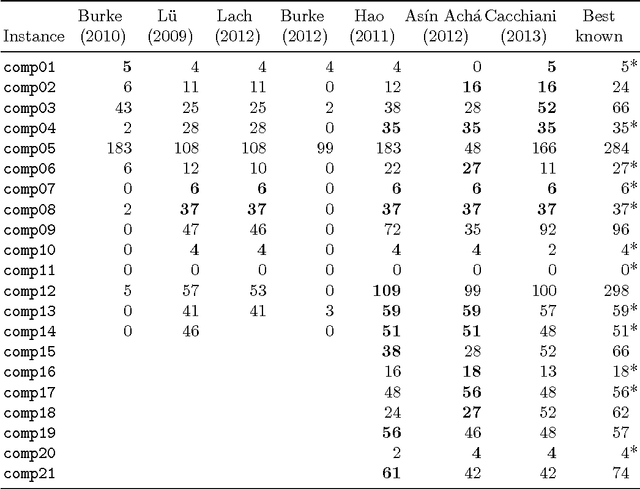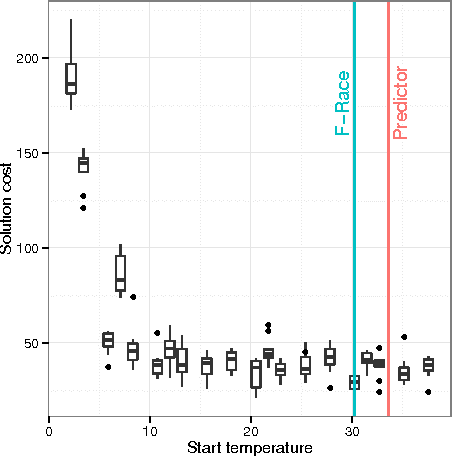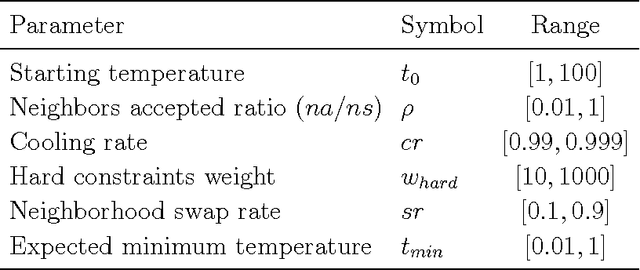Ruggero Bellio
Feature-based tuning of simulated annealing applied to the curriculum-based course timetabling problem
Jul 08, 2015



Abstract:We consider the university course timetabling problem, which is one of the most studied problems in educational timetabling. In particular, we focus our attention on the formulation known as the curriculum-based course timetabling problem, which has been tackled by many researchers and for which there are many available benchmarks. The contribution of this paper is twofold. First, we propose an effective and robust single-stage simulated annealing method for solving the problem. Secondly, we design and apply an extensive and statistically-principled methodology for the parameter tuning procedure. The outcome of this analysis is a methodology for modeling the relationship between search method parameters and instance features that allows us to set the parameters for unseen instances on the basis of a simple inspection of the instance itself. Using this methodology, our algorithm, despite its apparent simplicity, has been able to achieve high quality results on a set of popular benchmarks. A final contribution of the paper is a novel set of real-world instances, which could be used as a benchmark for future comparison.
 Add to Chrome
Add to Chrome Add to Firefox
Add to Firefox Add to Edge
Add to Edge